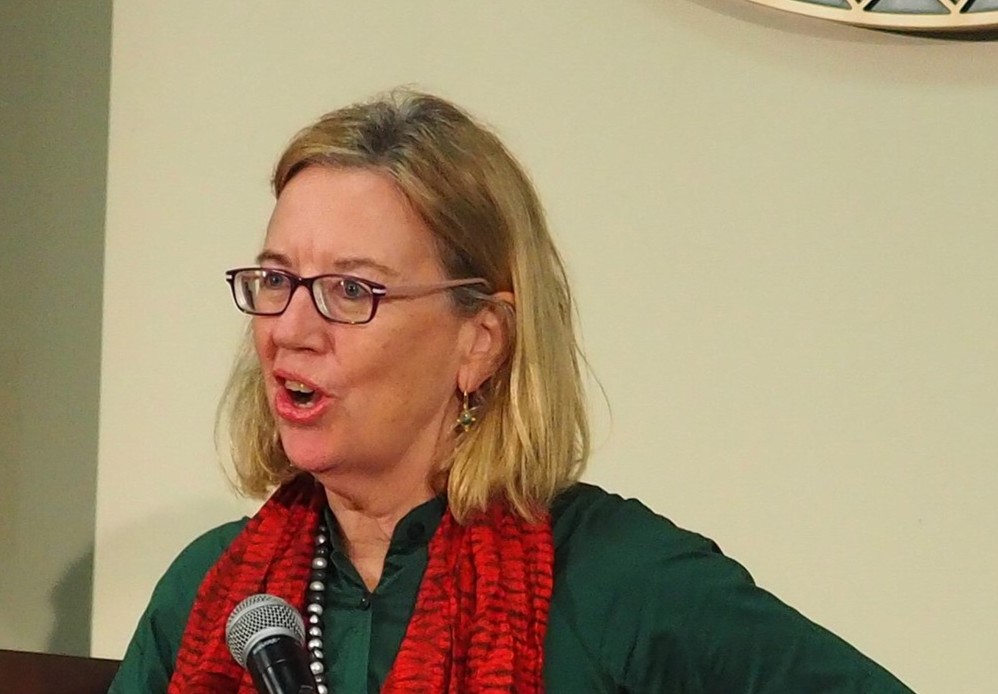Kaifi Azmi, poet, lyricist, lover and rebel, was an exceptional man and father. Something his daughter, actress Shabana Azmi, did not know how to deal with as a small child. But later would only be grateful for.
Speaking on Wednesday, the second day of the Tata Steel Kolkata Literary Meet being held in association with the Victoria Memorial Hall and The Telegraph, Shabana said that she would hide from her friends at school that her father was a poet, because she thought that “poet was a euphemism for a man who did not work”.
Shabana was taking part in a discussion on Kaifiyat: Verses on Love and Women, a just-published book of Kaifi’s poetry in English translation. On the stage with her were the translator, Rakhshanda Jalil, and writer and filmmaker Sangeeta Datta.
Shabana would soon get over her initial hesitation about her father and begin to get dazzled by him. Till she turned nine, the Azmi family would live in a “commune” in the city then called Bombay. A committed Communist, Kaifi was a leading light of the Progressive Writers’ Movement and his family was living together with seven other like-minded families, sharing one toilet and not much money. Another member of the “commune” was Ali Sardar Jafri, who, like Kaifi, was an Urdu writer, poet and lyricist, and CPI member. And they were both writing for films.
“I had a very, very happy childhood. All Indian festivals were celebrated by the families living together. It was a composite culture.”
Kaifi wrote exquisitely about love, but as a progressive writer, also believed that art should be an instrument to bring about social change. Born into a zamindar family in Uttar Pradesh in 1919, he left his life of comfort to first work with textile mill workers in Kanpur when he was 24. Then he came to Bombay where he continued his work.
He wrote love poems, love songs as well as revolutionary poetry. The woman he would marry, Shaukat, who would also become an acclaimed actress, heard him recite his poem Aurat, which asks a woman to walk with a man shoulder to shoulder, and fell in love with him. “There is another heaven outside a man’s embrace”, the poem says. “But she fell in love also because of his looks and voice,” said Shabana of her mother.
Among Shabana’s favourite poems by her father are the songs he wrote for Arth, a Mahesh Bhatt film in which Shabana acted. “They enter a woman’s soul. When my father was writing, there were other great Urdu writers writing for films: Majrooh Sultanpuri, Sahir Ludhianvi, Jaan Nisar Akhtar…,” said Shabana.
Jalil spoke about the beauty of Kaifi’s songs that he wrote for films like Kuchh dil ne kaha. “There was nothing esoteric about the words. They were simple and moving and listened to by everyone. It is poetry like this that kept Urdu going,” she said. “In the Bombay film industry, there was no distinction between film songs and high poetry.”












